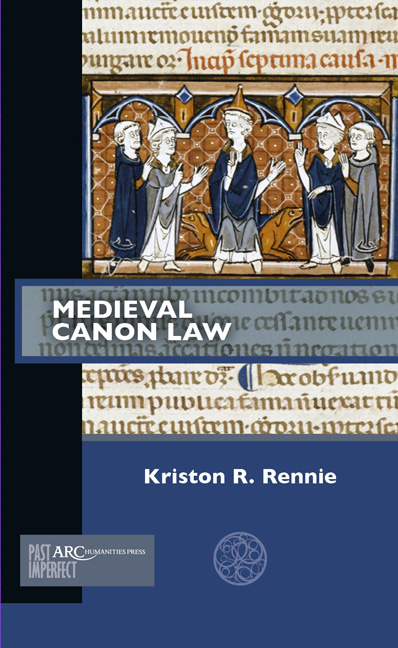Chapter 2 - Structure
Published online by Cambridge University Press: 27 January 2021
Summary
Medieval canon law has important apostolic origins. Its “creation story” begins with a scriptural (written) past, whose customs and divine constitutions concerned persons, things, articles of faith, and actions. This textual tradition was important to legitimizing the law's sacred authority and establishing a firm connection and heritage to Jesus Christ and his apostles. This essential historical and religious background frames the structure and rationale behind the law's creation, organization, purpose, authority, and use throughout the Middle Ages. From its very beginnings, Christian Scripture defined the regulatory behaviors of medieval society, setting out the customs for everyday matters of spiritual discipline and liturgical practice. These texts, and their subsequent interpretation, shaped the fundamental “rules” and “norms” of living, offering a source of spiritual guidance in the formative Christian centuries.
With the ultimate goal of Salvation, canon law provided a strong moral force and compass. The New Testament illustrates just how important it was to reaching the spiritual goals of a burgeoning Christian community. But there was always a tension between the law and faith, a reservation about the former's role in matters of spiritual guidance. Jesus said that he had come to fulfill the law, not to abolish it (Matthew 5:17); “so long as heaven and earth endure,” it was written, “not the smallest letter, not the least stroke of a pen, will by any means disappear from the law until everything is accomplished” (Matthew 5:18). He therefore recognized the law's central importance in matters of justice, mercy, and faithfulness (Matthew 23:23), calling its teachers hypocrites on one occasion because they neglected these more important or weightier matters. It was exactly these attributes that should be practiced, he contended. If anyone dared “set aside even the least of the law's demands,” or just as shameful, “teaches others to do the same,” then “he will have the lowest place in the kingdom of Heaven.” Alternatively, “anyone who keeps the law and teaches others so will stand high in the kingdom of Heaven” (Matthew 5:19).
The law's contemporary merit to Christian life and society was wellrecognized. Writing to the Galatians, St Paul reminded them that the law was their “guardian”; it served to lead all believers to Christ, so that they might be “justified by faith” (Galatians 3:24).
- Type
- Chapter
- Information
- Medieval Canon Law , pp. 11 - 30Publisher: Amsterdam University PressPrint publication year: 2018



